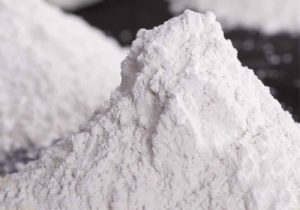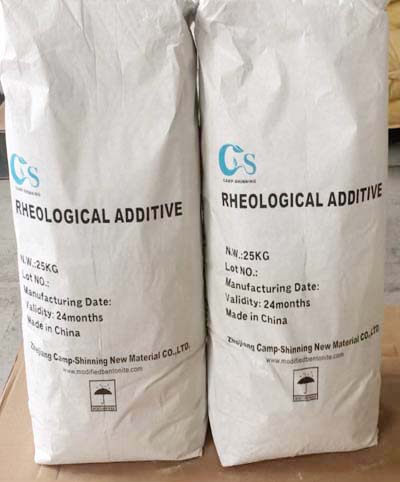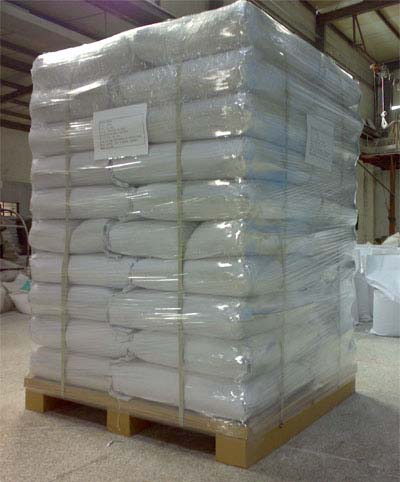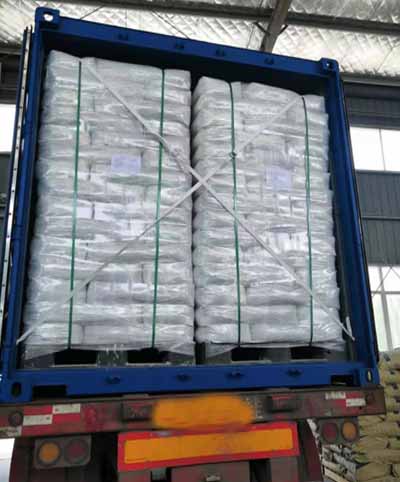
CP-992 Organophilic clay
CP-992 Organophilic Clay, the wet process improved viscosifier and gelling agent . It is a rapidly dispersing.
Hectorite uses : Lithium montmorillonite, because of its high purity content and wide range of applications, is prized by many industries.
In cosmetics and personal care products, montmorillonite has excellent hygroscopicity, it can be used in face masks, skin care products, shampoos, lotions, creams to maintain the texture of the product.
The use of lithium montmorillonite in drilling mud protects the walls of the well, lubricates the drill bit, and carries rock chips out of the well.
Organic bentonite made from lithium montmorillonite is also a very efficient thixotropic, anti-sagging and anti-settling agent when used in paints and coatings. The specific surface area affects the adhesion and mechanical properties of the paint.

Organoclay Supplier / Manufacturer :
Internet address: https://www.rheologymodifiers.com/
Email address: [email protected]
Whatsapp / Wechat: +86-13185071071
Organophilic Clay Supplier / Manufacturer :

CP-992 Organophilic Clay, the wet process improved viscosifier and gelling agent . It is a rapidly dispersing.

CP-982 Organophilic Clay is an amine treated bentonite with a moderate temperature performance.

CP-150 Organophilic Clay is a self-activating organoclay that disperses easily and performs well in diesel, low aromatic mineral oil, modified vegetable oil, and synthetic base fluid formulations.

CP-10 organoclay is a rheological additive made of organoclay. It is used in non-polar to moderately polar aliphatic and other solvent systems

CP-MPZ organoclays is an modified bentonite that is used in solvent and resin systems ranging from non-polar to highly polar.

The CP-MPS rheology modifier is a type of organo clay rheological additive that is used in solvent and resin systems ranging from non-polar to high polarity.




CP-EW Organoclay for Water Based paint. It is primarily employed in water borne paint systems,such as latex paint. So it is a good water based additive in paints,coatings,grease etc.

CP-EWS Modified bentonite It is employed in a water-borne coatings system. CP-EWS organoclay outperforms CP-EW in terms of thixotropy, transparence, and dispersion.

CP-WBS Rheology Modifier is rheological modified bentonite. It is mostly employed in water-borne systems.
Organoclay | Organophilic Clay CP-2 also named amine treated Bentonite.
hectorite uses
In diesel oil based fluids,organophilic clay viscosifier CP-2 are used to increase carrying capacity and suspension properties, providing support for weight materials and improved cutting removal. Organophilic bentonite also aids in filter-cake formation and filtration control.
Properties
Composition Organically modified bentonite clay
Physical appearance Off white to tan free-flowing powder
Moisture content (105℃,2hr) ≤4%
Particle size (<76μm or 200mesh) ≥95%
Specific Gravity 1.6-1.8
Advantages
Effective viscosifier and gellant
Aids control of fluid loss to the formation
Increases emulsion stability
Improves cuttings carrying and hole cleaning capacity
Suspends weighting materials and other solids
Confers temperature stability to the fluid
Application
Base oil:
Diesel Oils
Crude Oils
Mineral Oils
Synthetic Oil
Viscosifying drilling Fluids:
Oil based drilling fluids
Invert emulsion fluids
Workover fluids
Completion fluids
Casing packs
Packer fluids
Spotting fluids
Package
Organoclay | Organophilic Clay CP-2 is packed in 50lb(22.7kg) or 25kg/bag or customized,multi-wall paper sacks or Kraft paper bag with PE liner or customized.
Storage
CP-2 Store in a dry, well-ventilated area with temperature of 0℃-30℃. Keep container closed. The quality guarantee period is 24 months.
Notice
The information on use is based on data which are believed reliable, but any recommendation or suggestion made is without guarantee or warranty, since the conditions of use are outside our control. All products are sold on the conditions that purchasers shall make their own tests to determine the suitability of such products for their purpose and that all risks are assumed by user. We disclaim any responsibility for damages resulting from careless or improper handling or use. Nothing herein is to be taken as permission, inducement or recommendation to practice any patented invention without a license.
Internet address: https://www.rheologicaladditive.com/ and email address: [email protected]
Whatsapp / Wechat: +86-13185071071
hectorite uses
Lithium montmorillonite is one of the raw materials of our organic bentonite.
Hectorite uses
If you purchase lithium montmorillonite as the raw material of organic bentonite, we suggest you test his particle size distribution, PH value, water content, water resistance, burn loss, hydrophilicity and other indicators. PH value will directly affect the stability of paint coatings and particle size distribution, will directly affect the dispersion ability of bentonite in paint coatings. Moisture content, we generally require within 3.5%.
And whiteness is also a measure of organic bentonite an indicator, because it will directly affect the appearance of paint coatings.
Using lithium montmorillonite in water-based system paint, it can improve the adhesion of the paint, enhance its dispersing ability and water resistance.
It is important to note that when lithium montmorillonite is used as an organobentonite in drilling mud, we need to test its rheological properties, as well as its wall stability and chip carrying capacity, including lubricity.
We will be different concentrations of montmorillonite hectorite uses is about to be relatively similar temperature and pressure conditions for stability testing to determine his impact on the mud, it has been proved that the addition of lithium montmorillonite, the mud does not appear in the process of placing the delamination, indicating that it improves the stability of the mud.
The lubricity test was conducted to determine if the lithium montmorillonite could reduce the friction coefficient between the drill bit and the mud, reducing the wear on the drill bit and extending its service life.
All of the tests were conducted using montmorillonite in the hope that the drilling would be safer and more efficient.
In paint applications lithium montmorillonite is used as a filler and additive to improve the adhesion and chemical resistance of paints.
Overall, the amount of montmorillonite you add, and the surface preparation will have an effect on the adhesion of the paint.